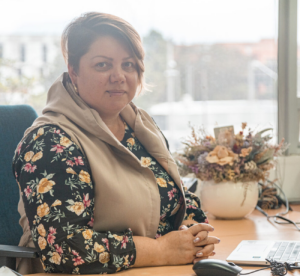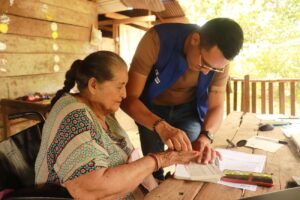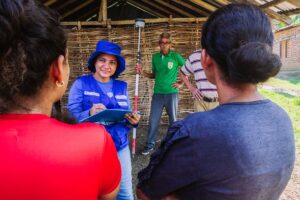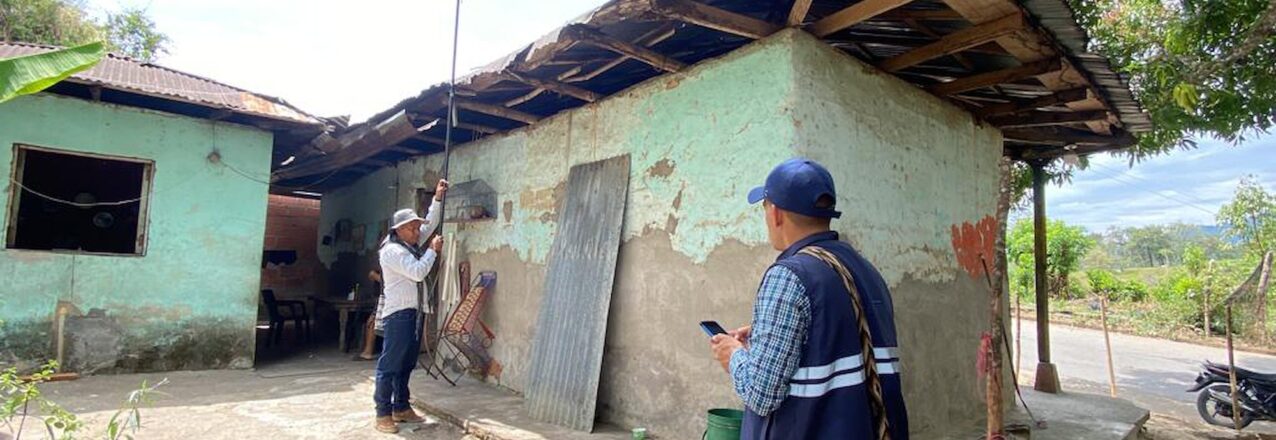Q&A with the Subdirector of the National Land Agency in Colombia, Andrea Silva
 Since signing the 2016 Peace Accords, the government of Colombia has transformed rural land administration by adopting a model that puts the onus of formalizing rural property on government land agencies like the National Land Agency (ANT). With the support of USAID’s Land for Prosperity Activity, the ANT is streamlining processes and simplifying the steps needed to deliver land titles. In this interview, the Technical Subdirector of the ANT, Andrea Silva, talks about how the Agency has taken advantage of USAID’s experience and is embracing an evolving approach to securing land rights.
Since signing the 2016 Peace Accords, the government of Colombia has transformed rural land administration by adopting a model that puts the onus of formalizing rural property on government land agencies like the National Land Agency (ANT). With the support of USAID’s Land for Prosperity Activity, the ANT is streamlining processes and simplifying the steps needed to deliver land titles. In this interview, the Technical Subdirector of the ANT, Andrea Silva, talks about how the Agency has taken advantage of USAID’s experience and is embracing an evolving approach to securing land rights.
What are the biggest challenges that the ANT faces during the formalization processes?
The main situation that affects our progress is that we need people to move land processes forward, and there are not a lot of skilled people with experience in land. It is not easy to find cadastral engineers or topographers with experience in rural land surveying. Therefore, we have to find new methodologies that allow us to collect physical and legal information, which is why we are making a big effort to move from direct to indirect methods. This paradigm change sometimes generates resistance, but it is necessary to make progress, because with parcel-to-parcel visits, we are not going to achieve comprehensive rural reform.
Has this changed how the government faces land informality?
Everything we do is useful for the cadastral authority, but that does not necessarily mean that we have to survey the entire municipality. So a big change in order to optimize time and resources is completing municipal parcel sweeps by intervention units. In this regard, an intervention unit is surveyed and the information is delivered to the ANT for validation. While the first unit is going through the ANT’s internal process, in the field, the second unit is already being surveyed. Through analysis, we know which units are the most informal, and so when we arrive, we already have a more accurate and clearer objective.
Is this new adaptation going to be used in the Santander de Quilichao parcel sweep?
 We have already used it, for example in the units that LFP delivered in Fuentedeoro and Puerto Lleras, we have already delivered land titles. In Santander de Quilichao we are going to identify the people and parcels that need to be formalized, that need land administration or legal tenure. We are going to make the processes quicker, more consistent, and especially produce results faster. What we aspire to is to avoid what happened to us in previous parcel sweeps, which were very long processes, too long for a single municipality, so we can gradually make progress.
We have already used it, for example in the units that LFP delivered in Fuentedeoro and Puerto Lleras, we have already delivered land titles. In Santander de Quilichao we are going to identify the people and parcels that need to be formalized, that need land administration or legal tenure. We are going to make the processes quicker, more consistent, and especially produce results faster. What we aspire to is to avoid what happened to us in previous parcel sweeps, which were very long processes, too long for a single municipality, so we can gradually make progress.
What role do new technologies play in simplifying processes?
Strengthening information systems and data collection systems is very important to the ANT. We are increasingly moving towards the improved use of technology, even though in rural environments this is difficult. In the countryside, people do not feel comfortable signing digital documents, on a tablet, for example. They like using pen and paper, having a hard copy of the document to take home with them. It is necessary to move towards technology in a gradual way, so that the communities continue to trust us.
Have the recommendations made by LFP increased the efficiency of the ANT and other public entities like IGAC?
 Yes, we have implemented many changes, not only in the processes but also in simplifying forms, consolidating information collection tools, and issuing guidelines that are clear, not just for ANT employees but also for the parcel sweep operators. For example, before the ANT had 32 attention routes for land formalization, and we simplified the processes to 24 routes. Everything LFP has done to support the ANT with Rural Property and Land Use Planning translates to the possibility for a dignified life for rural Colombians.
Yes, we have implemented many changes, not only in the processes but also in simplifying forms, consolidating information collection tools, and issuing guidelines that are clear, not just for ANT employees but also for the parcel sweep operators. For example, before the ANT had 32 attention routes for land formalization, and we simplified the processes to 24 routes. Everything LFP has done to support the ANT with Rural Property and Land Use Planning translates to the possibility for a dignified life for rural Colombians.
Are these changes strengthening how the ANT achieves comprehensive rural reform?
The comprehensive rural reform goes beyond delivering land titles. Of course, the title is the first step for people to access institutional services, for them to have a guarantee when requesting a low-interest loan from a bank, or to access a subsidy. The ANT looks for the people and parcels that are subject to formalization in a way that permits them to access all institutional services. Delivering a property title is delivering hope, delivering possibilities, it means that the life projects of these rural communities can be given certainty.


